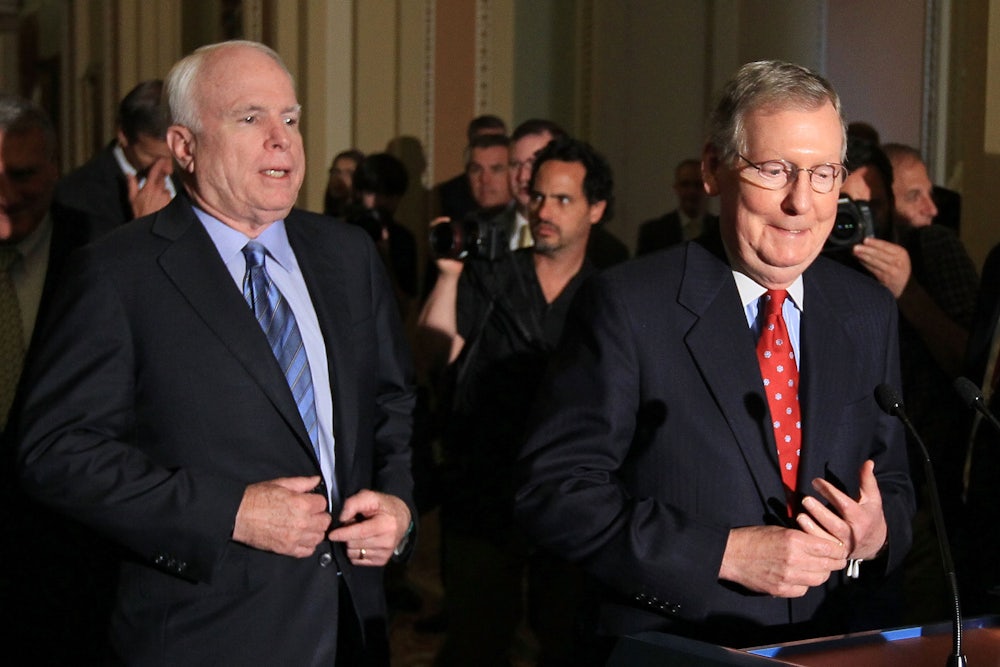The term “skinny repeal” is something Republicans came up with to describe a scaled-back health care bill, the main effect of which would be to eliminate the Affordable Care Act’s coverage requirement—the individual mandate.
It’s a fiendish rhetorical trick, because it accurately describes something meaningless—the literal size of the amendment—while creating intentional confusion about the effect the provision would have.
It is also now the default term that many people, including health care reporters, are using to describe a piece of legislation that, if enacted, would reduce insurance coverage by 15 million people and cause premiums to skyrocket.
Republicans are poised to adopt a measure that has the potential to send insurance markets across the country into actuarial death spirals. The people who cover this loony health care process should at the very least attempt to distill the consequences of the not-so-skinny bill into their descriptions of it.
Senators will justify their votes for this death spiral measure as a means of advancing a legislative process they claim to hate. Calling it a “skinny bill” allows them to pretend it’s a kind of placeholder, ahead of future negotiations. Never mind that their process objections are ginned up—the bill they will be voting for would be almost as disastrous, on its own terms, as the more fleshed-out repeal bills several Republicans claim to oppose for being too harmful. They shouldn’t be allowed to hide from that fact.
